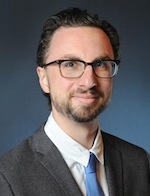Daily Business Report-July 6, 2015
Comic-Con characters pose at the San Diego Convention Center, 2012
Tourism Boosters Expecting
Less Money From Comic-Con
By Lisa Halverstadt | Voice of San Diego
Every year, tourism boosters hail the exposure and cash Comic-Con brings to San Diego. This year’s no different — but the figure they’re using is.
The Convention Center Corp. is now projecting a $136 million regional economic boost from Comic-Con. That’s considerably smaller than the $178 million that got tossed around last year.
The drop isn’t because of fewer convention-goers. It’s because they’ve shifted their method of calculating Comic-Con’s impact after a Voice of San Diego story threw shade on last year’s estimate.
At the time, I explained that the $178 million projection was faulty for three reasons:
• A 7-year-old Comic-Con hotel booking study established the room-sale projections incorporated in the $178 million estimate. Its conclusions are questionable because the convention and its attendees have changed substantially since 2008.
• Visitor spending estimates for Comic-Con are based on a 2011 study that relied on interviews with attendees from Comic-Con and 41 other conventions. The median household income for those interviewed was about $106,000, probably far richer than Comic-Con’s average attendee. So it’s a safe bet Comic-Con attendees have different spending habits.
• The $178 million estimate essentially double-counted the income of business owners and workers whose companies supply things like beer or printing work for the convention.
Erik Bruvold, president of National University’s Institute for Policy Research, and Marney Cox, the lead economist for the San Diego Association of Governments, both told me the double-counting issue inflated Comic-Con’s moneymaking numbers.
Convention Center Corp. spokesman Steven Johnson said the VOSD story and concerns raised by local researchers pushed the Convention Center to ask CIC Research economist Skip Hull, who put together last year’s numbers, to investigate further.
Hull suggested both the Convention Center Corp. and the Tourism Authority start multiplying the economic effect of their events by 1.69 rather than 2.27 when trying to estimate the trickle-down spending associated with them. Bruvold and Cox said using that higher number in the past led to higher estimates.
“You can’t add things together that are already in the multiplier,” Cox told me.
Hull said that means the economic impact estimates tied to Comic-Con and other big events in San Diego will now be on “equal footing” with projections elsewhere.
But Hull maintains San Diego could be making more on Comic-Con than even that earlier estimate suggested.
He said Comic-Con organizers haven’t allowed for a large-scale questioning of their attendees that would facilitate more detailed and updated research. Doing so could show Comic-Con’s bringing in more cash, Hull said. (Hull’s logic could also work the other way — Comic-Con could also be generating less than projections show.)
Problem is, Hull hasn’t been asked. Johnson said the Convention Center Corp. hasn’t lobbied for a detailed study since 2010.
Bottom line: “I have not been hired to do a study of the Comic-Con visitors’ activities and spending in San Diego and that’s kind of a limitation,” Hull said.
Comic-Con 2015 opens Thursday and runs through Sunday.
UC San Diego Researcher Wins $1.5 Million
Grant to Study Drug Use Prevention
Dan Werb, PhD, an internationally noted epidemiologist UC San Diego School of Medicine, has been named one of four inaugural recipients of the Avenir Award, a prestigious $1.5 million research grant from the U.S. National Institute on Drug Abuse, part of the National Institutes of Health (NIH).

The award recognizes high impact research on HIV and substance abuse, and emerging leaders in the field. Werb’s work as a visiting scholar in the Division of Global Public Health and elsewhere – he is also the new director of the International Centre for Science in Drug Policy (ICSDP) in Toronto – has focused on how drug policy reforms in places like Tijuana, Mexico impact risk behaviors and access to addiction treatment among people who inject drugs.
At UC San Diego, Werb will use his Avenir funding on a new project called PRIMER: Preventing Injecting by Modifying Existing Responses. PRIMER will attempt to control the spread of addiction by harnessing existing public health interventions, such as testing new ways to prevent injection drug use through methadone maintenance therapy and supervised injection sites. The PRIMER project will be international in scope, with researchers involved in San Diego and Tijuana; Vancouver, Canada; and Paris, Marseille and Bordeaux, France.
“For too long, the goals of preventing addiction have seemed at odds with efforts to treat this condition,” said Werb, who joined the global public health faculty at UC San Diego School of Medicine in 2013. “It is my hope that over the coming years we will demonstrate that treating the harms of addiction is, in fact, not only compatible with prevention aims but is actually an effective way of preventing the spread of addiction across populations.
“Through PRIMER, I believe we will be able to identify ways to prevent the spread of addiction. And through the ICSDP, we will be able to take this evidence and support governments to develop more effective policy responses to addictions.”



